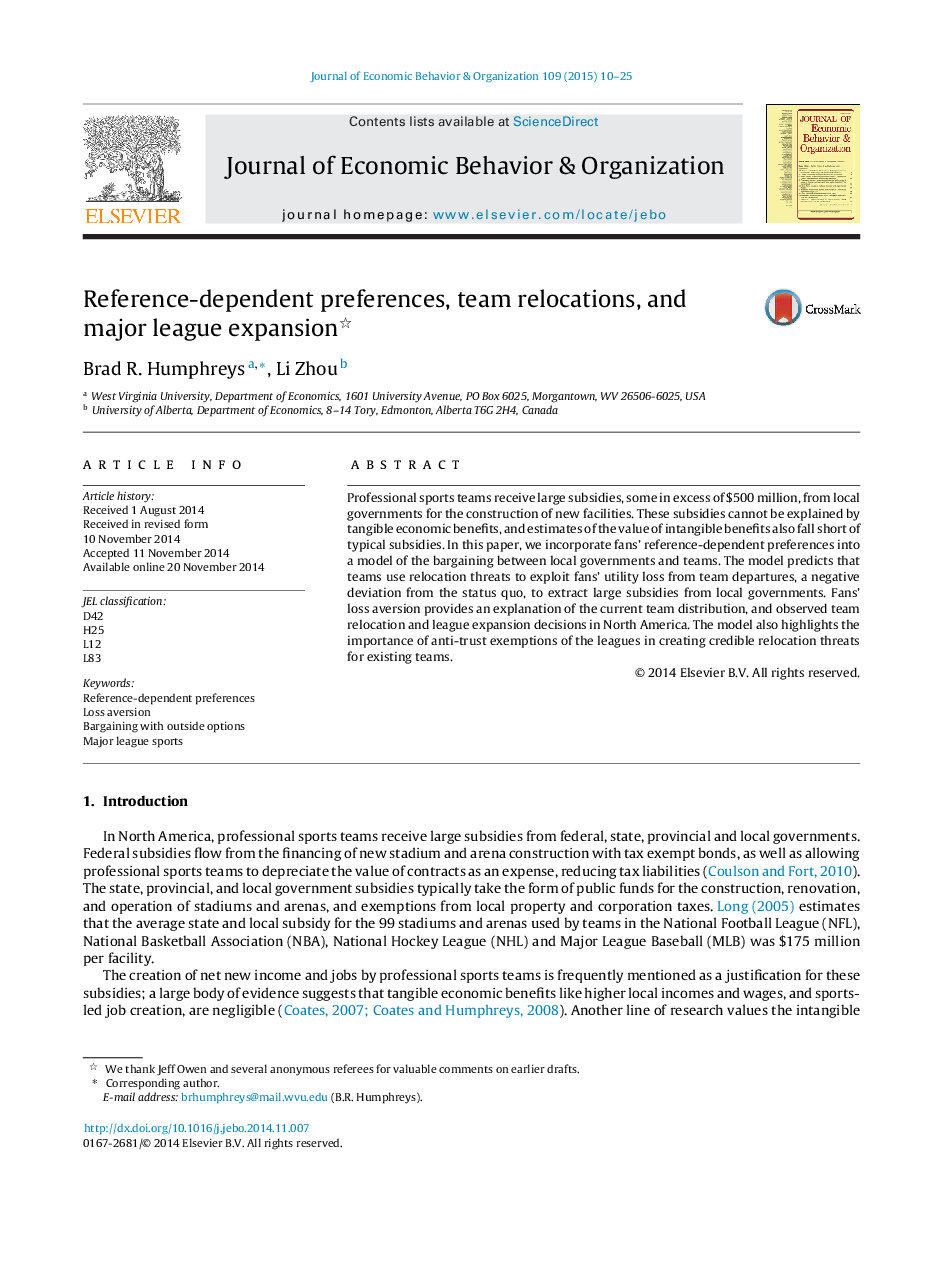| Article ID | Journal | Published Year | Pages | File Type |
|---|---|---|---|---|
| 883481 | Journal of Economic Behavior & Organization | 2015 | 16 Pages |
•Reference-dependent preferences and loss aversion in a bargaining model.•Fans and teams bargain over facility subsidies.•Predicts loss aversion allows teams to extract larger subsidy.•Provide an explanation for large subsidies and relocation/expansion decisions.•Identifies setting where reference-dependent preferences affect public policy.
Professional sports teams receive large subsidies, some in excess of $500 million, from local governments for the construction of new facilities. These subsidies cannot be explained by tangible economic benefits, and estimates of the value of intangible benefits also fall short of typical subsidies. In this paper, we incorporate fans’ reference-dependent preferences into a model of the bargaining between local governments and teams. The model predicts that teams use relocation threats to exploit fans’ utility loss from team departures, a negative deviation from the status quo, to extract large subsidies from local governments. Fans’ loss aversion provides an explanation of the current team distribution, and observed team relocation and league expansion decisions in North America. The model also highlights the importance of anti-trust exemptions of the leagues in creating credible relocation threats for existing teams.
